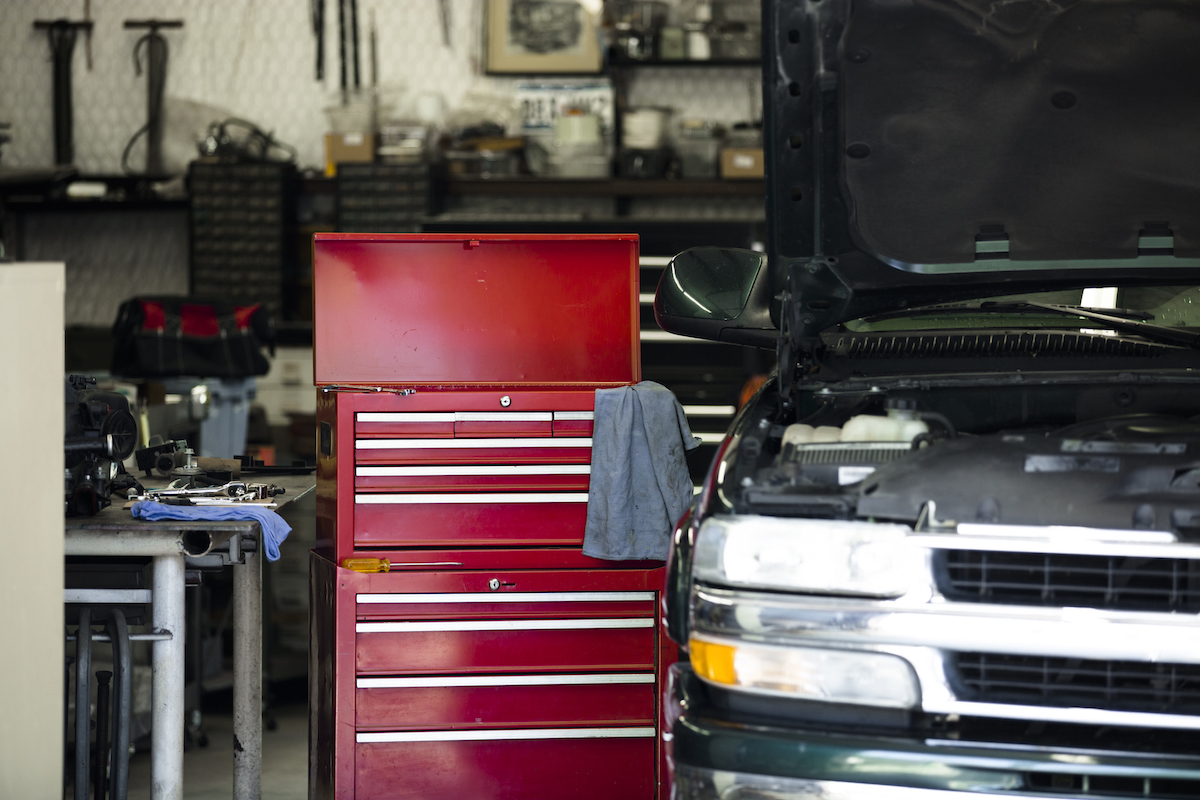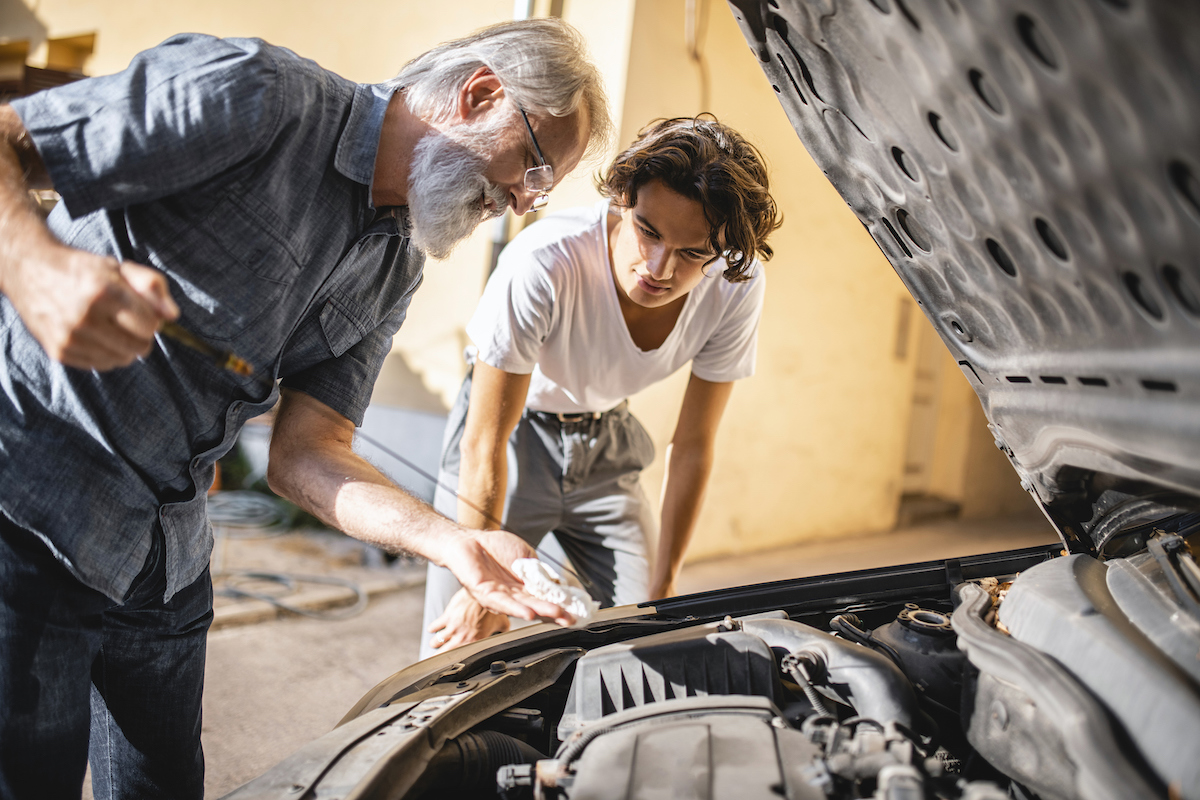We may earn revenue from the products available on this page and participate in affiliate programs. Learn More ›
DIY automotive maintenance and repair is easier than you might think—and it will save you a bundle, to boot. Often the biggest hurdle for vehicle owners to overcome is confidence, or lack thereof, when it comes to tackling troubles under the hood alone. Luckily, there’s a trustworthy resource at your fingertips in Bob Vila’s library of automotive tips and tutorials.
Here you’ll find a mix of how-to articles that will guide you through basic projects like swapping out a dead car battery, as well as expert advice from our sister site The Drive for creating an ideal garage for DIY mechanics. We’ll even help you nail down essential tools that will come in handy as you develop your new skill set.
When you’re ready to impress your friends and family (not to mention yourself!), keep more money in your bank account, and be more self-sufficient when it comes to caring for your car, read on to learn how to become your own auto mechanic.
Start Small
As with learning any new skill, it’s helpful to start with the basics. Once you get your feet wet and have a sturdy foundation to build on, it’s easier to progress to more advanced projects. For newbie mechanics, the following how-tos are totally doable and don’t even require a dedicated garage or shop space. All you need is a handful of simple tools that will prove useful for many more automotive tasks as you continue to learn.
How to Change a Tire
How to Change Windshield Wipers

Equip Your Garage
With a few simple maintenance tasks and repairs under your belt, it’s time to level up your garage to suit bigger projects that require a sheltered space and more tools. What matters most, according to The Drive, is that your home shop is designed to accommodate your needs and the level of projects you intend to complete.
Your garage space should allow you to work as efficiently as possible and not get bogged down by clutter. Be sure to include plenty of storage for tools and parts as well as a dedicated chemical storage cabinet for flammable or otherwise hazardous liquids, like motor oil and transmission fluid.
How to Build the Perfect Starter Mechanic’s Garage
13 Essential Tools for DIY Auto Maintenance
No garage? Consider joining a local garage co-op where, for an hourly rate or membership fee, you can reserve shop space and use tools alongside other DIY mechanics. A quick search in your area may reveal a hidden gem you never knew about.
Challenge Yourself
Having a dedicated workspace outfitted with the proper gear will surely light a fire to hone your new skills. Offer to help out a neighbor or friend with vehicle maintenance to gain more experience, and don’t be afraid to try new and incrementally more difficult projects such as changing your car’s oil and fluids.
How to Change Transmission Fluid

Take it Slow
Learning to be your own mechanic requires diligence and patience. Be prepared to put in more time and effort into your tasks than they take at a professional automotive shop—you’re still learning! The goal is to complete projects correctly and save money on labor. Rushing can not only do damage to your vehicle, it can also be downright dangerous for you. Take every safety precaution seriously, and keep the following top tips in mind as you embark on becoming your own auto mechanic:
- Take notes and photos of everything. As you disassemble parts or unplug wires, snap photos, jot down notes, and use tape to label everything. You’ll be relieved to have the documentation on hand as you reassemble. Just be sure to check your work against these references multiple times throughout a project.
- Keep resources at the ready. Speaking of documentation, don’t delete the notes and photos you take with each project. Instead, file them away in an organized fashion, so you can access them the next time you tackle the same project. And be sure to bookmark your go-to resources (like this page!) for future reference.
- Shop around for parts. It may take more time, but you can save a significant amount of cash by shopping around for the best deals on parts. Always save your receipts for possible returns as well as for future reference.
- Stay positive. When learning any new skill, there’s a good chance you’ll encounter a frustrating situation—and auto maintenance and repair is no exception. Don’t get discouraged. Channel that frustration into figuring out the solution. You may need to backtrack a few steps, review your vehicle’s manual, or consult fellow DIY mechanics, but just stick with it. Successfully completing a challenging project will give you the confidence to tackle the next one.


